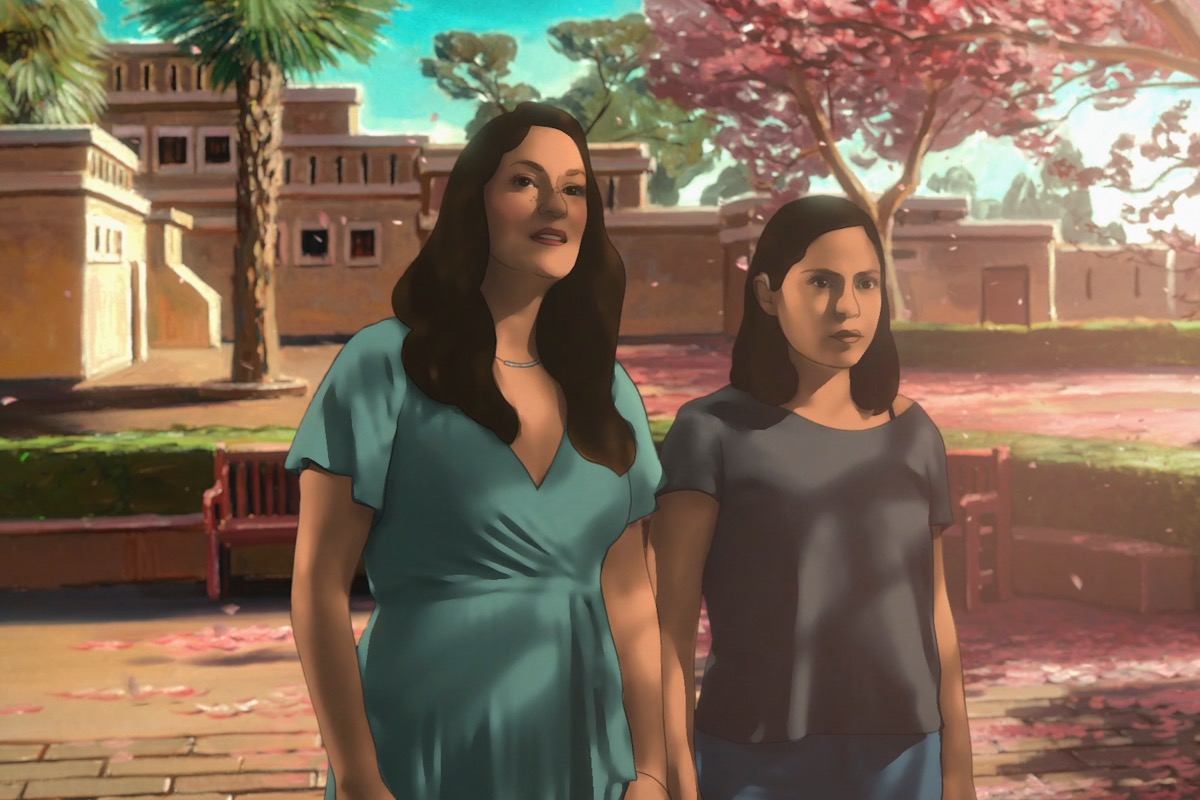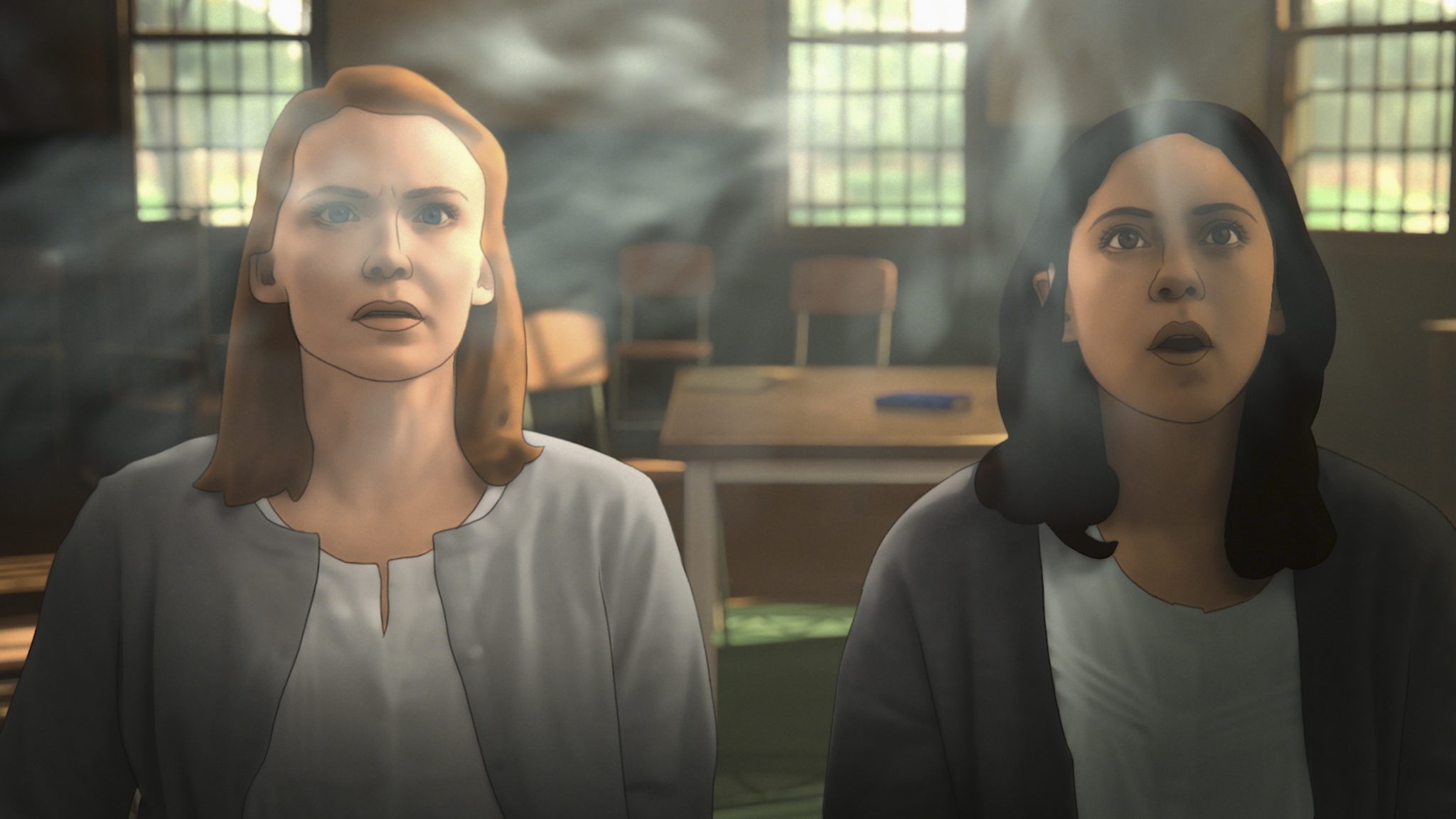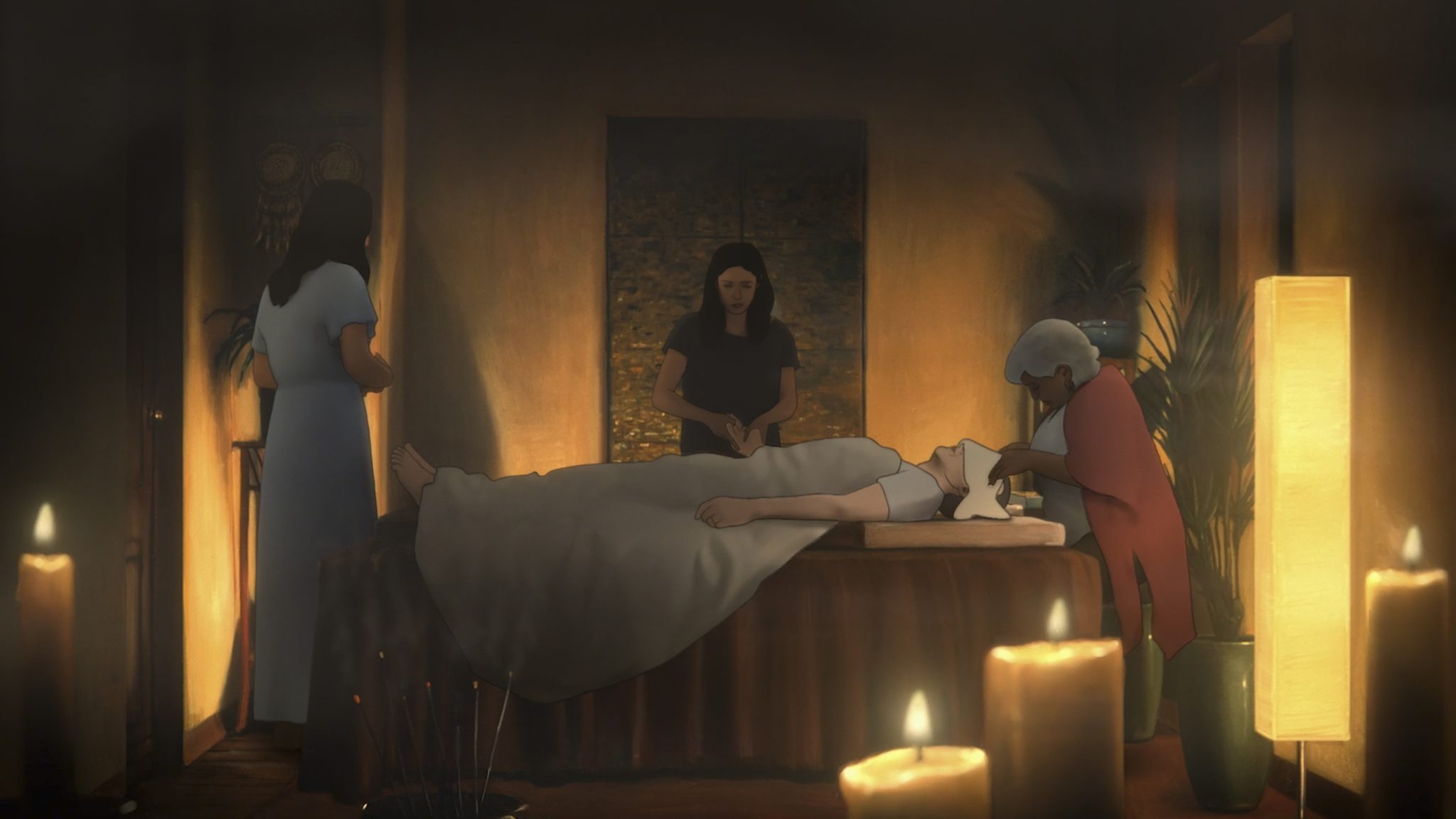

Screenshot from ‘Undone’ (The Tornante Company/Amazon Studios)
LOS ANGELES — Amazon’s trippy, time-traveling Undone tells the story of a mixed family: white dad Jacob Winograd (Better Call Saul’s Bob Odenkirk), Latina mom Camila Diaz (Constance Marie), and their two daughters, Alma Winograd-Diaz (Rosa Salazar) and Becca Winograd-Diaz (Angelique Cabral). The second season, which premiered April 29, focuses on the family’s roots, with protagonist Alma visiting the moments when her ancestors left for the U.S. and the trauma that caused them to go.
As someone with one Anglo and one Latino parent —the genders of mine are the reverse of Alma’s— I always pay special attention when this particular story gets told. Generally, the narratives around mixed children are pretty weird. There’s the idea that we’re supposed to be more attractive (cool, I guess?) but also not fit in anywhere (taking ni de aquí, no de allá to the next level).
While the literary canon is deep with progenies of Black-white pairings, Latinidad is basically founded on mixing. We’re “mestizos” —“la raza cósmica“— even if those ideas are rooted in white supremacy, with Spanish colonizers believing they could mix the Black and Indigenous out. Generally, the idea was to get as close to white as possible or face tragic consequences.
Undone bucks the typical mixed-family narrative though. It’s not that the Winograd-Diazes don’t have their fair share of tragedy or benefit from their proximately to whiteness—they do. But the show puts their two identities on equal and overlapping fields, so Alma and Becca can be 100 percent Latina without losing access to their white/Jewish/Polish roots and what that means to them as estadounidenses. In fact, this very premise is baked into the show’s structure.
We start season two by learning that Alma was successful in season one in switching timelines to one where her father didn’t die in a fateful car crash. Now that she knows her powers work, she spends the rest of the season trying to heal her family’s wounds, which stem from how and why they ended up in the United States in the first place.


Screenshot from ‘Undone’ (The Tornante Company/Amazon Studios)
Showing how families’ paths can be determined by women’s choices, the show follows Alma’s paternal grandmother Geraldine on one side and her mother on the other. We see Geraldine as a young girl in Poland, gifted and persecuted. She and her mother Leeba (played by Jane the Virgin’s Yael Grobglas) are the sources of Alma’s power, having passed on their gift of seeing through time to their descendants. But their powers and identities are vulnerabilities in 1930s Poland, and Alma has to help young Geraldine process an unspeakable tragedy in order to heal.
On the Mexican side, Camila faces off with patriarchy and loses to the Catholic Church and retrograde ideas about family honor and a woman’s worth. It costs young Camila her family, so when kind Jacob shows up, she’s untethered, ready to give up a place that’s already forsaken her.
These two stories of women losing their families and coming to the States are definitive for present-day Alma and given equal weight within the show as measured by time and importance to the plot. But here’s where I get a little CRT on you: Whiteness is the default in media and in the United States. It’s the baseline, the yardstick on which every other identity is measured short. So for Alma and Becca to really, truly, represent an equal pairing of their roots, the Latino needs a bit more.
And it’s here that Undone truly shines. The first season had great moments of Alma finding meaning while exploring her Indigenous side while Becca seemed to lose herself in whiteness—largely by assimilating with her racist in-laws. Likewise, in season two, there’s this fun twist where Alma, having healed some of her intergenerational trauma through her time travel, realizes she can now speak Spanish!


Screenshot from ‘Undone’ (The Tornante Company/Amazon Studios)
Affirming jokes aside, however, the show elevates the Diaz side of the family by taking its characters to Mexico and leaving them there for the majority of the season. This isn’t the sepia-toned, stereotypical Mexico, but the modern, normal place where your extended family lives. It’s a familial homecoming with all the comfort and pain that goes with it. So while Alma and crew time-travel to 1930s Poland, they book flights to Mexico and find what they’re looking for there: their mother, their mother country, and their secrets.
With such choices and structure, Undone brings nuance and humor to modern characters with Anglo and Latin roots without ever questioning their authenticity in either space. It’s a powerful break from the narrative of difference and less-than we normally see, and I’m grateful for it.
***
A writer and activist, Cristina Escobar is the co-founder of latinamedia.co, uplifting Latina and gender non-conforming Latinx perspectives in media. She’s a member of the Latino Entertainment Journalists Association and writes at the intersection of race, gender, and pop culture. Twitter: @cescobarandrade


